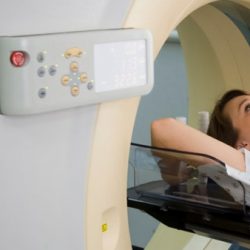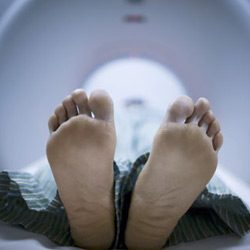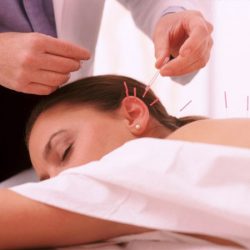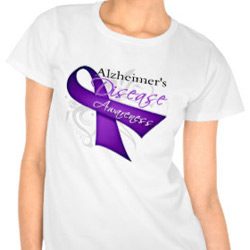Recent research has linked the thin air of higher elevations to increased rates of depression and suicide. But a new study shows there's also good news from up in the aspens and pines: The prevalence of attention deficit hyperactivity disorder (ADHD) decreases substantially as altitude increases. In Utah, for example, an analysis of information from two national health … [Read more...]
Alternative Health News

Major research in Amyotrophic Lateral Sclerosis (ALS): A Study
Amyotrophic lateral sclerosis (ALS) is a progressive neurodegenerative disease that affects nerve cells in the brain and the spinal cord. Motor neurons reach from the brain to the spinal cord and from the spinal cord to the muscles throughout the body. Scientists at Mayo Clinic, Jacksonville, Florida created a novel mouse that exhibits the symptoms and neurodegeneration … [Read more...]
Genetically predicted higher blood pressure linked to antihypertensive use and lower Alzheimer’s risk: A Study
Genetic variants that predict higher systolic blood pressure (SBP) are associated with a higher probability of taking antihypertensive medication and with decreased risk of Alzheimer disease (AD), according to a study published this week in PLOS Medicine. The study, conducted by Robert Scott of the MRC Epidemiology Unit, University of Cambridge, UK, Soren Ostergaard, (Aarhus … [Read more...]
Novel population health management program yields major health improvement: Indiana University Study
The Aging Brain Care Medical Home, a novel population health management program implemented in the homes of older adults achieves significant health improvement for individuals with depression and also substantial stress reduction in family caregivers of dementia patients, according to a new study by investigators from the Regenstrief Institute, Indiana University Center for … [Read more...]
Link between brain and lymphatic system: A Finnish Study
In a study published in The Journal of Experimental Medicine, researchers working at the Wihuri Research Institute and the University of Helsinki report a surprising finding that challenges current anatomy and histology textbook knowledge: Lymphatic vessels are found in the central nervous system where they were not known to exist. Aleksanteri Aspelund and colleagues discovered … [Read more...]
Self-acupressure can help in constipation: University of California Study
About 19 percent of North Americans suffer from constipation, with the digestive condition being more common among women, non-whites, people older than 60, those who are not physically active and the poor. The costs are significant. Hospital costs to treat the condition were estimated at $4.25 billion in 2010 alone. Constipation can also lead to depression, lower quality of … [Read more...]
Role of liver biopsy in children: A Study
While noninvasive alternatives are increasingly available, liver biopsy still provides essential information in some children with liver disease, according to a new position paper in the Journal of Pediatric Gastroenterology and Nutrition, official journal of the European Society for Paediatric Gastroenterology, Hepatology and Nutrition (ESPGHAN) and the North American Society … [Read more...]
New finding on the formation of fat tissue in humans
While all red and white blood cells derive from stem cells in the bone marrow, the scientific community has been divided over whether bone marrow cells are also able to produce other cell types. In the present study, the researches wanted to ascertain whether cells from the bone marrow could develop into fat cells; the problem is, however, that no experimental method is … [Read more...]
Thick cortex could be key in Down syndrome: A Drexel University Study
The thickness of the brain's cerebral cortex could be a key to unlocking answers about intellectual development in youth with Down Syndrome. It could also provide new insights to why individuals with this genetic neurodevelopmental disorder are highly susceptible to early onset Alzheimer's Disease later in life. New brain-imaging research published in the journal Cerebral … [Read more...]
Drug improves cognition in Alzheimer’s disease: A University of Alabama Study
Long-term administration of a drug that mimics the hunger-signaling hormone ghrelin protected Alzheimer's disease-model mice from memory deterioration, despite a high-glycemic-index (GI) diet, according to research published in the journal Scientific Reports by University of Alabama at Birmingham investigator Inga Kadish, Ph.D., and colleagues. Kadish, the senior author of … [Read more...]
Comparing analgesic effect of manual vs laser acupuncture for lateral epicondylalgia: A Chinese and Taiwanese Study
A team of researchers from China Medical University and Da-Chien General Hospital in Taiwan (R.O.C.) recently compared the analgesic effect of laser acupuncture and manual acupuncture for the treatment of lateral epicondylalgia. Manual acupuncture is effective in short-term pain relief for the treatment of lateral epicondylalgia. The acupuncture increases endorphin secretion … [Read more...]
Health professionals can enhance cognitive health in older adults: A Study
An expert panel convened by the Institute of Medicine clarified the cognitive aging process by making a distinction from Alzheimer disease and related dementias, and provided recommendations to enhance cognitive health in older adults. Now a new article published in Annals of Internal Medicine highlights key points of that report and serves as a guide for health care … [Read more...]
Drinking green tea before taking supplements may offer protection from toxicity: A Study
As high doses of green tea extract supplements for weight loss become more popular, potential liver toxicity becomes a concern. In the last decade, dozens of people have been diagnosed with the condition. However, drinking green tea in the weeks before taking supplements likely reduces risk, according to researchers in Penn State's College of Agricultural … [Read more...]
Redrawing the language Map of the brain: A Northwestern University Study
For 140 years, scientists' understanding of language comprehension in the brain came from individuals with stroke. Based on language impairments caused by stroke, scientists believed a single area of the brain -- a hotdog shaped section in the temporal lobe of the left hemisphere called Wernicke's region -- was the center of language comprehension. Wernicke's was thought to … [Read more...]
Digital map of the aging brain could aid the diagnosis of Alzheimer’s disease: University of Edinburgh Study
A digital map of the aging brain could aid the diagnosis of Alzheimer's disease and other neurodegenerative disorders in older people, a study suggests. The atlas created using images from MRI scans of older people could aid diagnosis by comparing the patients' scans with a detailed map of the healthy aging brain. Most existing MRI atlases are based on the brains of young … [Read more...]
Understanding the Mechanisms of Action of Traditional Oriental Medicine: A Korean Study
Traditional oriental medicine (TOM) has been practiced in Asian countries for centuries, and is gaining increasing popularity around the world. Despite its efficacy in various symptoms, TOM has been practiced without precise knowledge of its mechanisms of action. Use of TOM largely comes from empirical knowledge practiced over a long period of time. The fact that some of the … [Read more...]
OTC medications, supplements are most common causes of drug-induced liver failure: University of Pennsylvania Study
Drug-induced acute liver failure is uncommon, and over-the-counter medications and dietary and herbal supplements -- not prescription drugs -- are its most common causes, according to new research from the Perelman School of Medicine at the University of Pennsylvania. The findings are published in the current issue of Gastroenterology. One of the most feared complications of … [Read more...]
High acid diet may have negative effects on kidney health: A Study
For patients with chronic kidney disease, diets with a high acid content may increase their risk of developing kidney failure. The finding, which comes from a study appearing in an upcoming issue of the Journal of the American Society of Nephrology (JASN), suggests that patients may want to limit their intake of meats and increase their consumption of fruits and vegetables to … [Read more...]
Psychological factors play a part in acupuncture treatment of Back Pain: University of Southampton Study
People with back pain who have low expectations of acupuncture before they start a course of treatment will gain less benefit than those people who believe it will work, according to new research from the University of Southampton. Conversely, those people who have a positive view of back pain and who feel in control of their condition experience less back-related disability … [Read more...]
Updated clinical practice guidelines for Adult sinusitis: American Academy of Otolaryngology
An updated clinical practice guideline from the American Academy of Otolaryngology--Head and Neck Surgery Foundation published in Otolaryngology-Head and Neck Surgery identifies quality improvement opportunities and explicit actionable recommendations for clinicians managing adult sinusitis, including a greater focus on patient education and patient preference. "More than … [Read more...]
Roseroot herb helps in depression treatment: University of Pennsylvania Study
Rhodiola rosea (R. rosea), or roseroot, may be a beneficial treatment option for major depressive disorder (MDD), according to results of a study in the journal Phytomedicine led by Jun J. Mao, MD, MSCE, associate professor of Family Medicine, Community Health and Epidemiology and colleagues at the Perelman School of Medicine of University of Pennsylvania. The proof of … [Read more...]
An antioxidant system that helps sustain liver during crisis discovered: A Montana State University and Swedish Study
Scientists from Montana State University and Sweden have discovered an antioxidant system that helps sustain the liver when other systems are missing or compromised. Like a generator kicking in when the power fails or an understudy taking the stage when a lead actor is sick, the newly found system steps up during a crisis. It's fueled by methionine, an amino acid that can't be … [Read more...]
Green tea improve the image quality of MRIs: A Study
Green tea's popularity has grown quickly in recent years. Its fans can drink it, enjoy its flavor in their ice cream and slather it on their skin with lotions infused with it. Now, the tea could have a new, unexpected role -- to improve the image quality of MRIs. Scientists report in the journal ACS Applied Materials & Interfaces that they successfully used compounds from … [Read more...]
Multiple pathways progressing to Alzheimer’s disease: University of California Study
The amyloid cascade hypothesis of Alzheimer's disease (AD) posits that sticky aggregations or plaques of amyloid-beta peptides accumulate over time in the brain, triggering a series of events that ultimately result in the full-blown neurodegenerative disorder. The hypothesis has been a major driver of AD research for more than 20 years. However, in a new study published this … [Read more...]
Alzheimer’s disease works differently in patients with and without Down Syndrome: University of Kentucky Study
Researchers at the University of Kentucky's Sanders-Brown Center on Aging have completed a study that revealed differences in the way brain inflammation -- considered a key component of AD-- is expressed in different subsets of patients, in particular people with Down syndrome (DS) and AD. People with Down syndrome have a third copy of Chromosome 21, and that chromosome is … [Read more...]
New Research in solving mystery of Alzheimer’s, Parkinson’s, ALS, and BSE (Mad Cow Disease): University of Alberta Study
Working towards the ultimate goal to develop therapeutics to treat diseases such as Alzheimer's, Parkinson's, ALS, and BSE (Mad Cow Disease), University of Alberta scientists Michael Woodside, Hao Yu, and Derek Dee are investigating the physical principles underlying the formation of misfolded protein aggregates. The aggregates of misfolded proteins -- proteins that clump … [Read more...]
New ways to stop Parkinson’s : University of Alabama Study
When you hear the phrase "good genes," you probably picture a supermodel like Kate Upton, or a sports superstar like Washington Nationals slugger Bryce Harper. People, in other words, who may have worked hard for their success, but were blessed with some helpful genes as well. Superstar geneticist Haydeh Payami, Ph.D., has spent the past two decades searching for a different … [Read more...]
High blood pressure linked to reduced Alzheimer’s risk: A Brigham Young University Study
A new study suggests that people with a genetic predisposition to high blood pressure have a lower risk for Alzheimer's disease. However, authors conclude the connection may have more to do with anti-hypertension medication than high blood pressure itself. "It's likely that this protective effect is coming from antihypertensive drugs," said co-author John Kauwe, associate … [Read more...]
Mushrooms boost immunity: University of Florida Study
A new University of Florida study shows increased immunity in people who ate a cooked shiitake mushroom every day for four weeks. Of the thousands of mushroom species globally, about 20 are used for culinary purposes. Shiitake mushrooms are native to Asia and are cultivated for their culinary and medicinal value. In a 2011 study led by UF Food Science and Human Nutrition … [Read more...]
Effects of light therapy on brain function: A Study
Following up on promising results from pilot work, researchers at the VA Boston Healthcare System are testing the effects of light therapy on brain function in veterans with Gulf War Illness. Veterans in the study wear a helmet lined with light-emitting diodes that apply red and near-infrared light to the scalp. They also have diodes placed in their nostrils, to deliver photons … [Read more...]
- « Previous Page
- 1
- …
- 14
- 15
- 16
- 17
- 18
- …
- 25
- Next Page »




























